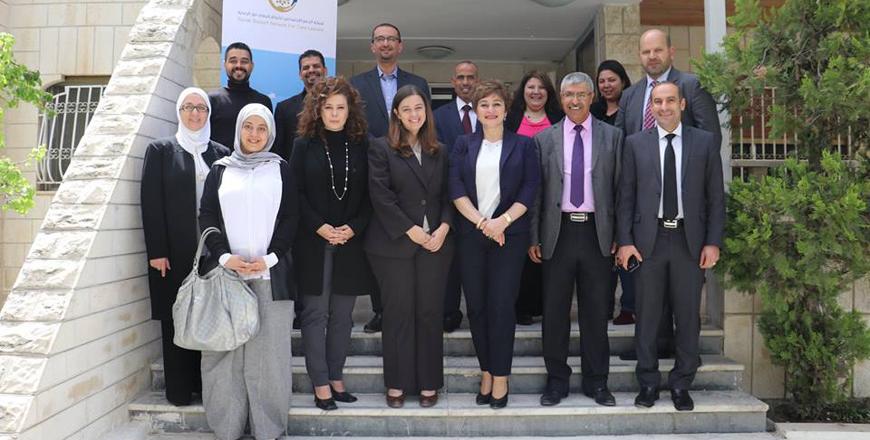You are here
Young people ‘deprived of family ties’ worried about future — study
By Dana Al Emam - Feb 29,2016 - Last updated at Feb 29,2016
AMMAN — Over 90 per cent of care home leavers say they are worried about their future and around half of them say they lack emotional stability, according to a study whose results were released Monday.
Meanwhile, all surveyed care home leavers who are deprived of family ties said they are “not ready” to integrate into the society after leaving care homes at the age of 18.
Children deprived of family ties are orphans who lost one or two parents, children of unknown parents, children with known mothers and unknown fathers, and victims of broken families who do not receive care.
Conducted by the Information and Research Centre-King Hussein Foundation (IRCKHF), the study seeks to identify and eliminate legal and social inequalities against orphans of “unknown origin”, and to provide them with an official support system that facilitates their integration into society.
Surveyed care home leavers complained of stigmatisation, adding that the last names given to them by the authorities, which usually resemble regular first names rather than family names, cause them discomfort and embarrassment, with some avoiding mentioning them altogether.
Furthermore, the national numbers that start with 2000 given to children with unproved parentage are odd, since these numbers usually start with the year of birth.
The polled care home leavers also said they face difficulties in finding jobs, especially with “not enough attention” given to their education while at care centres.
The study shows that 13 out of the surveyed 18, from three different care centres, did not go to school daily while at these homes.
In another study within the same project involving a wider sample, only 15.2 per cent of the surveyed said they could marry an individual with unknown parents, and 14.9 per cent said they could marry an individual with an unknown father.
The report also showed “high” divorce rates among female care home leavers, many of whom were married before the age of 18.
The preparatory phase of the “Empowering Care Leavers in Jordan” project started in 2014 and included reviews of legislative texts, media content, literature review and theoretical frameworks on the issue.
The second phase included data collection through peer research, where care home leavers received training on data collection.
The third and last phase, which is expected to start this March, is dedicated to raising awareness and advocating the rights of young people deprived of family ties.
The project recommends creating a network of civil society organisations for the support of youths deprived of family ties, as well as developing a national strategy that addresses the needs and challenges facing care home leavers, according to the IRCKHF.
It also calls for intensifying supervision over care homes, foster families and to endorse the term “deprived of family ties” and disregard all other names.
The project is funded by USAID through a grant from its Civic Initiatives Support Programme implemented by FHI 360.
Related Articles
AMMAN — With the aim of ending discrimination against people deprived of family ties, a campaign seeks to spread social awareness and empowe
AMMAN — The King Hussein Foundation’s Information and Research Centre (IRCKHF) recently participated in “SANAD”, the first regional conferen
AMMAN — The Information and Research Centre — King Hussein Foundation (IRCKHF) and six civil society organisations (CSOs) on Thursday signed
















